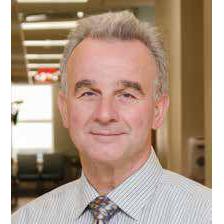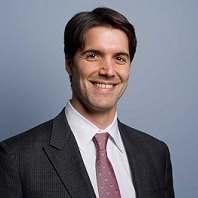Comprehensive Hernia Center
At our Comprehensive Hernia Center, we are dedicated to the care of hernia patients. As such, we ensure that our patients get the most expert care around. Whereas other surgeons may perform hernia repair as a small portion of our practice, you’ll see each of our practitioners as absolute experts in the field of hernia surgery. Because of this we can offer advanced hernia repair techniques not offered anywhere else with outcomes that are superior to any nearby center.
At the Comprehensive Hernia Center, we also collaborate with physicians specializing in rehab medicine, interventional radiology, clinical nutrition, and orthopedic surgery. Because these specialties are all a part of our Comprehensive Hernia Center, you are always seen by physicians who are all familiar with the hernia repair and recovery process. When we fix hernias, we strive to do it with the most advanced and minimally invasive techniques available, to get you back to living your life to the fullest. When you are worried about getting your hernia fixed, do it right, the first time.

What is a Hernia?
A hernia is a weakness or opening in the wall of the abdomen. Soft tissue such as fat or the intestine can protrude through the abdominal muscles and occupy the space under the skin. It is not unlike a bulge in a damaged car or bicycle tire, where the inner tube—normally contained by the hard rubber of the tire—extends through a thin or weakened place. The opening in the abdominal wall that leads to the hernia is also called a hernia defect.
Expert Hernia Repair and Abdominal Wall Reconstruction
Hernias, openings, and other defects in the wall of the abdomen can cause significant discomfort and affect your quality of life. The surgeons at NewYork-Presbyterian Brooklyn Methodist Hospital are leaders in repairing complex hernias and other abdominal wall defects requiring complex surgery. They typically use minimally invasive robotic surgery to close the opening in the abdomen, restoring your comfort and function and returning you to your normal activities in just weeks.
Conditions We Treat
- Inguinal (Groin) Hernias
- Umbilical (Belly Button) Hernia
- Ventral Hernias
- Spigelian Hernias
- Incisional Hernias
- Recurrent Hernias
- Hernia Incarceration/Strangulation
- Rectus Diastasis
- Lumbar, Obturator, and Flank Hernias
Treatments We Offer
- Open Hernia Repair
- Laparoscopic Hernia Repair
- Robotic Hernia Repair
- Abdominal Wall Reconstruction
- Component Separation
- Totally Extraperitoneal Hernia Repair
- Non-Mesh Hernia Repair (Suture only repair)
- Mesh Excision
- Nerve Resection
- Hernia Repair under Minimal Anesthesia
- Other General Surgery Procedures (i.e. gallbladder removal, lipoma or cyst removals)
Who can have abdominal wall surgery
Our surgeons use abdominal wall surgery to care for people with:
- Previously repaired hernias
- A bulge larger than a baseball
- Abdominal wall defects due to being overweight or as a complication of a prior surgery
- A history of drainage of fluid or an infection in the abdomen
- An ostomy (bag worn on the abdomen to collect waste)
Robotic hernia surgery
Our surgeons most often repair abdominal wall defects using a robotic surgery approach. During the procedure, the operating room staff positions the arms of the robot on the patient’s abdomen. The surgeon controls the robot while sitting at a console nearby, operating through multiple very small incisions with exceptional dexterity and precision.
What to expect
Before Surgery
- Avoid taking aspirin, ibuprofen (Advil or Motrin), or other aspirin-containing products for two weeks before the operation.
- Follow your surgeon’s instructions regarding bowel preparation.
- If you smoke, stop smoking. Doing so will help you heal better.
During Surgery
You will receive general anesthesia and be asleep during the operation. There are different ways to fix the defect in the abdominal wall, using:
- Muscle flaps are taken from your abdomen or other areas of your body to repair the opening
- Synthetic materials to close and maintain the integrity of the abdominal wall
After Surgery
- If you have robotic surgery, you will likely stay in the hospital one night and go home the next day. Your stay may be a few days if you have open abdominal surgery.
- You can expect discomfort, but few people report serious pain.
- You may be given an abdominal binder to wear after the operation. Your surgeon will let you know how long to wear it.
- Avoid strenuous activity, heavy lifting, or exercise for at least 4 to 6 weeks. You can expect to return to your normal activities after this time.
Why Choose Us
Surgeons at NewYork-Presbyterian Brooklyn Methodist Hospital have over 50 years of combined experience repairing complex hernias and abdominal wall defects. We have been at the forefront of this surgical procedure in New York City and have become a well-established destination for people with complex hernias. Make an appointment to see one of our surgeons. We are waiting for your call.
Our Team
Director, Comprehensive Hernia Center
Specialties
Surgery

Co-Director, Comprehensive Hernia Center
Specialties
General Surgery
Affiliations
NewYork-Presbyterian Brooklyn Methodist Hospital
Hernia Center Locations
We see patients at multiple locations for your convenience. Our providers are also available for virtual visits in the comfort of your own home.




